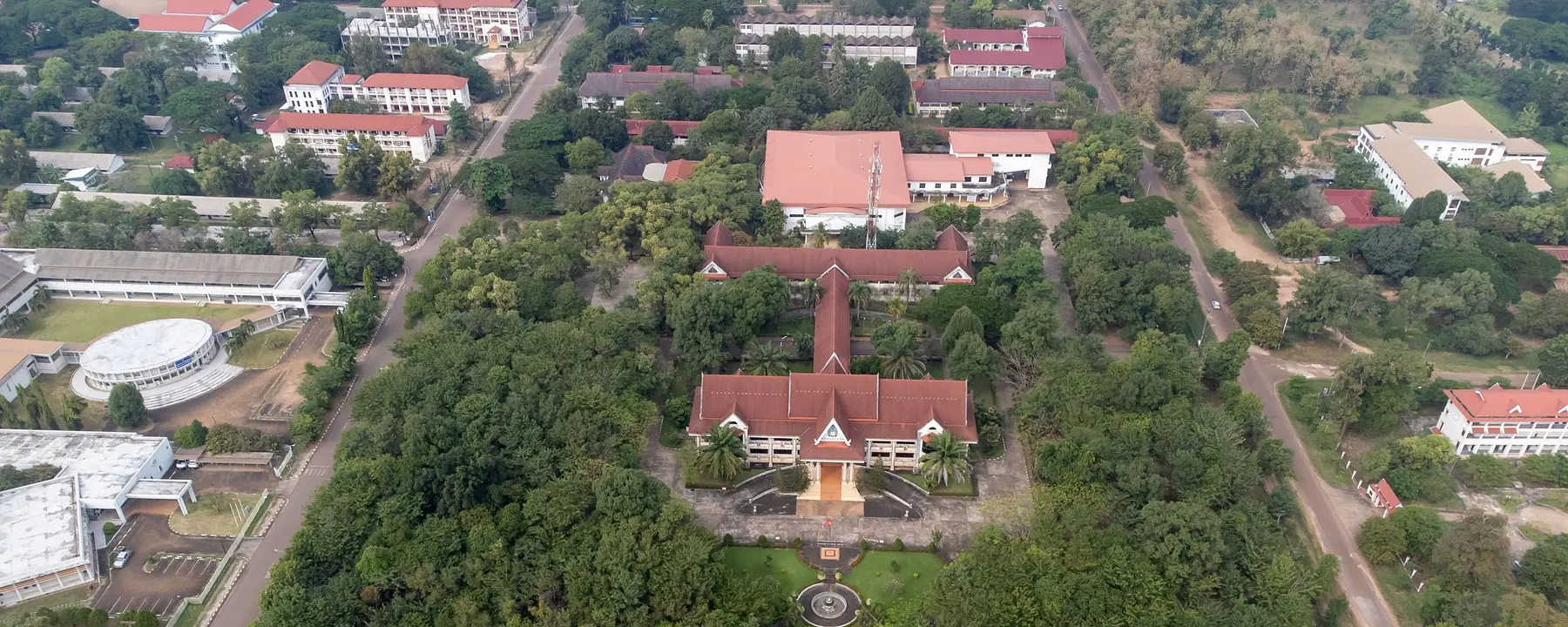The USAID Laos Local Solutions Support activity is empowering Lao-led sustainable development solutions by helping universities develop a skilled workforce for the future and employ service-learning practices for local development.
Objective
Improve organizational and leadership capacity of local university partners for determining development priorities and delivering effective localized development responses.
Approach
Collaboratively work to enhance higher education institutions’ (HEI) operational, technical, and leadership capacity through mentorship, technical assistance, and tailored training.
Impact
By working with and through local partners, the activity aims to empower local champions to support the development of their own solutions, and ultimately be set on the path to delivering sustainable programs.
The USAID Laos Local Solutions Support (LSS) activity is working with four Laotian universities under a service-learning framework to help them be drivers of social and economic development and participants in the public policy process. Using a customized, participatory, and demand-driven approach, LSS is empowering them to take ownership over their capacity development process and performance.
Building University Partnerships in Laos
Through engagement with the Laos Ministry of Education and Sports and the National University of Laos, LSS worked with partners to co-create a plan to strengthen the four Lao universities using a network strengthening and service-learning model. Through varied capacity development activities, the four universities have improved their institutional capacity, selected, and trained 40 master trainers and advisors, initiated policy research efforts, and have taken a more active role in local socioeconomic development.
RTI helped broker memoranda of understanding (MOUs) between our university partners and local free economic zones and chambers of commerce to conduct economic development research and promote pro-growth economic policies and practices. Based on this, Champasack University worked with the local chamber of commerce to conduct assessments of the coffee and cassava value chains. This resulted in a policy briefing that was presented to local authorities to reduce local business bottlenecks and enhance the conditions for improved trade and production of these and other agriculture items.
Targeting Training Through Master Trainers
LSS worked with the universities to co-create a capacity development curriculum for university-based master trainers and advisors (MTAs), which includes 10 new training modules and two enhanced modules, for a total of 12 high-level management courses.
The MTAs then cascaded training to others in local universities, the Provincial Chambers of Commerce, a micro-finance institute, and private companies covering leadership development and value chain research. NOUL MTAs were asked by the Presidential Administration of Laos to deliver an advanced leadership training which will also be delivered to other national and local government entities.
Integrating Gender, Equity, and Social Inclusion in Training Programs
LSS trained 102 key change-makers from NOUL’s Women's Union, NUOL’s Youth Union, and the Lao Trade Federation on integrating GESI into management policies and guidelines. LSS is also working with all four university partners to develop actionable gender and inclusive development action plans.
Creating Opportunities for Youth
The activity helped organize four youth job fairs and facilitated two youth social innovation labs reaching a combined 1,967 people - 72% of which were university students who were able to build new networks, gain new knowledge, and find new employment.
LSS also provided training on coaching skills and techniques for business pitch competitions and provided specialized leadership training to university students to help them succeed in their future careers.
- U.S. Agency for International Development (USAID)
- Duke University
- The National University of Laos
- Souphanouvong University
- Savannakhet University
- Champasack University


